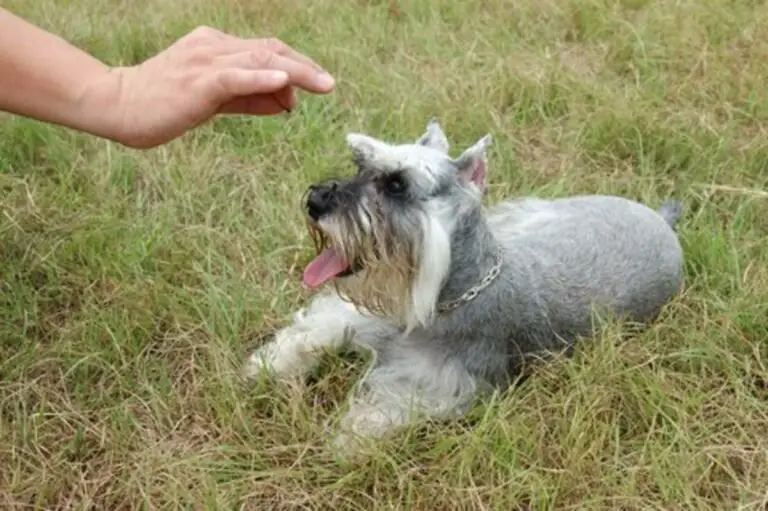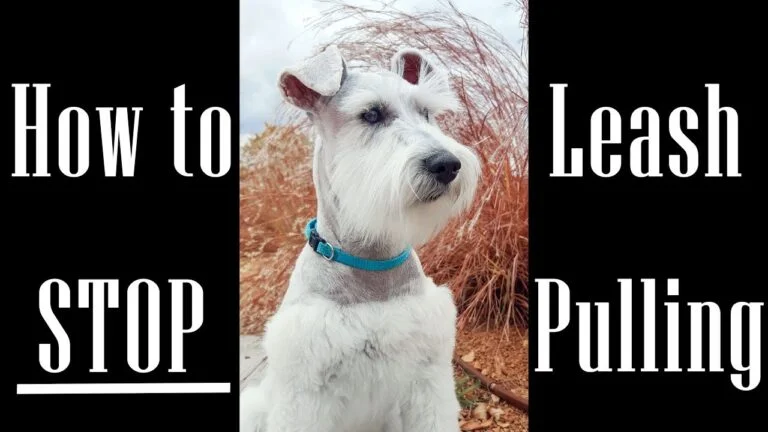How to Stop Your Schnauzer from Barking
Despite their energetic nature and intelligence, Schnauzers can occasionally acquire a barking tendency that can cause problems in homes. Knowing the reasons behind your Schnauzer’s barking and taking positive action will help you both relax and strengthen your relationship with your dog. We’ll look at the causes of the barking and the most effective ways to stop it in this article.
Understanding the Bark: Causes for Your Schnauzer’s Potential Vocalization
Comprehending the reasons behind your Schnauzer’s verbal inclinations is essential for efficient training and peaceful cohabitation.
Loneliness and Boredom:
- They frequently experience emotions of loneliness and hopelessness, which they express by constant barking.
- An accumulation of energy occurs when frequent involvement and activity are absent. They can’t find a healthy method to let this out, so they turn to excessive barking as a form of expression.
Environmental Stressors:
- A Schnauzer may bark because of curiosity or attentiveness in response to many stimuli, such as the sound of a doorbell, fun barking from nearby dogs, or the honking of a horn.
- Any significant changes to their comfortable surroundings, such as moving to a new home, can be quite stressful. Increased vocalizations are a common symptom of this unfamiliarity and the tension that goes along with it.
Calling for Attention:
Like kids, dogs occasionally act out to get attention. If your Schnauzer used to get attention for his or her barking, even if it was only a short look or a gentle scolding, then your dog will rapidly come to link the behavior with your attention. Their tendency to bark may be unintentionally reinforced by this training, which will increase their vocalization anytime they want your love or attention.
The Instinct for Protection:
Due to their keen senses and vigilant nature, schnauzers inherently guard their families and homes. They frequently use their barking as a preventative tactic to alert owners to approaching strangers or possible hazards, fulfilling their duty as devoted protectors.
Techniques to Reduce Barking
It takes time, understanding, and persistent tactics to successfully reduce a Schnauzer’s barking. The good news is that it is completely attainable with the appropriate strategy.
Instruction & Directives:
- Regular Training: It’s all about consistency. Consistency in training guarantees that your Schnauzer can relate a command to the desired action. For best results, use directives like “Enough” or “Quiet” anytime they begin to bark, and always use the same tone and gesture.
- Positive Reinforcement: Reward-based behavior is very responsive in dogs. Give your Schnauzer a reward or their favorite toy as soon as they obey your instructions and cease barking. Over time, this favorable association makes them more receptive to instructions.
Give Enough Exercise:
Exercise is an essential strategy for behavioral control in addition to being about physical effort. Making sure your Schnauzer has enough exercise can have a big impact:
- A dog that gets enough exercise is usually calmer and less likely to bark excessively. Engaging in plays, walks, and other engaging activities on a daily basis helps release pent-up energy and promotes general relaxation.
Redirect and Distract:
Changing your dog’s concentration might be an easy way to break the cycle of barking:
- When your Schnauzer starts barking, distract them by offering them a toy that appeals to them or starting a training session. Over time, this shift of attention aids in the habit’s breakup.
- Furthermore, puzzle toys are a great purchase. These toys keep your dog cognitively challenged in addition to entertaining them, which keeps them interested and reduces the likelihood that they will start barking out of boredom.
FAQs
Schnauzers are talkative, clever canines. Owners are often left perplexed by their barking. With the intention of providing clarification and direction, the following commonly asked questions about Schnauzer barking are provided.
- My Schnauzer barks at night; why is that?
Owners of Schnauzers may be particularly concerned when their dogs howl at night. There might be several explanations for this behavior. Your Schnauzer may be responding to sounds that you are not aware of, such far-off sounds or even animals that are active at night. Loneliness or separation anxiety is another frequent cause, particularly if they are left alone in a separate room. Make sure their sleeping space is cozy to help with this. They can have a restful night’s sleep by masking any irritating outside noise with the use of a white noise machine or calming music. - Will my Schnauzer bark less after being neutered or spayed?
Barking that is connected to territory or mating can be reduced by spaying or neutering. To handle all barking issues, these processes are not a one-size-fits-all approach, though, and this must be understood. It’s more important to identify the underlying reason of the barking and take the necessary action to remedy it. - Can Schnauzers wear anti-barking collars?
While some dogs find success with anti-barking collars, this isn’t always the best or most compassionate course of action. It’s critical to put your dog’s welfare first. When contemplating such gadgets, be sure your pet is a good fit by speaking with a reputable veterinarian or a licensed dog behaviorist. - Does a Schnauzer’s barking indicate a health problem?
Although Schnauzers naturally bark, excessive or unusual barking may indicate underlying health problems. Increased vocalization might be brought on by discomfort, pain, or even certain neurological diseases. It’s important to arrange a visit to the veterinarian for a comprehensive examination if you observe any further symptoms or behavioral changes in addition to the barking. - How much time does a Schnauzer usually need to be trained to quit barking?
Depending on the dog and how consistently the training method is applied, training times might differ significantly. Schnauzers are intelligent, but they may be obstinate, which makes teaching them occasionally more difficult. But after several weeks of consistent training, consistent praise, and lots of patience, many Schnauzer owners report a noticeable decrease in needless barking. Recall that the secret is to identify the cause of the barking and take the proper action.
In summary: It’s important to recognize and meet your Schnauzer’s demands in addition to maintaining a calm atmosphere if you want to control their barking. You and your Schnauzer may have a happy, harmonious relationship if you identify the underlying issues and take patient, consistent action to fix them.








